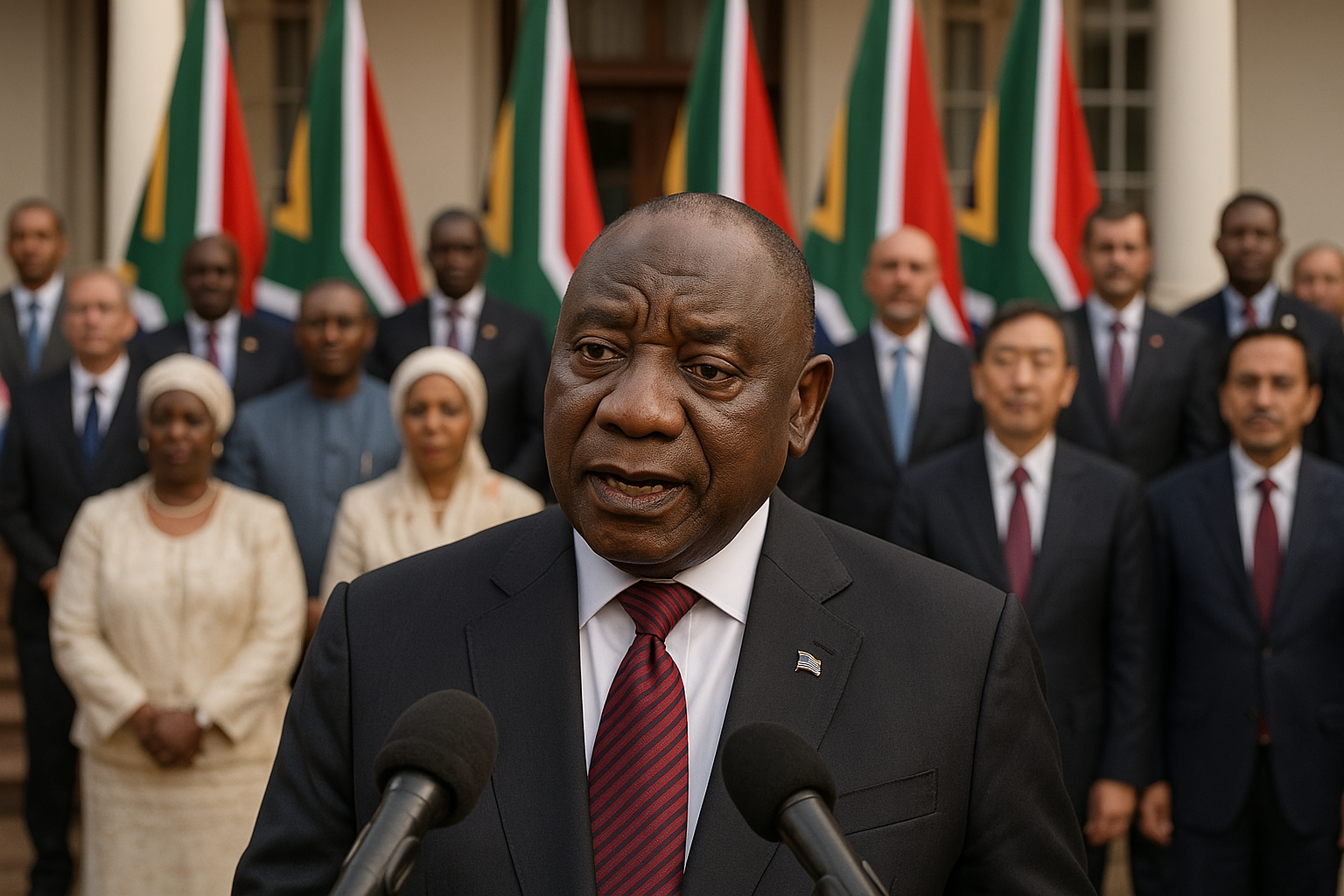Ramaphosa Launches Inquiry into Alleged Sabotage of Apartheid Crimes Probes
The formation of the commission was announced following settlement discussions in a legal case brought by families of TRC-identified victims.

- Country:
- South Africa
President Cyril Ramaphosa has signed a historic proclamation establishing a Judicial Commission of Inquiry to investigate allegations that attempts were made to obstruct the investigation and prosecution of apartheid-era crimes, particularly those referred by the Truth and Reconciliation Commission (TRC).
The commission is to be chaired by retired Constitutional Court Judge Sisi Khampepe, with support from retired Northern Cape Judge President Frans Diale Kgomo and Advocate Andrea Gabriel SC. The decision comes in response to growing concerns and mounting legal pressure from victims' families who have long accused state institutions of failing to pursue justice for crimes committed during apartheid.
A Step Toward Justice and Closure
The formation of the commission was announced following settlement discussions in a legal case brought by families of TRC-identified victims. These families alleged that former and current officials within the South African Police Service (SAPS) and the National Prosecuting Authority (NPA) may have been pressured or influenced to abandon investigations into apartheid-era crimes.
“For many years, there have been allegations of interference in these cases... This has caused the families of victims great anguish and frustration. All affected families – and indeed all South Africans – deserve closure and justice,” President Ramaphosa said.
He described the commission as a crucial opportunity to uncover the truth, hold those responsible accountable, and recommend measures to rectify historical injustices.
Terms of Reference: Probing Interference and Institutional Complicity
The newly established commission is tasked with a broad and investigative mandate, including:
-
Determining if and by whom attempts were made to prevent the SAPS or NPA from pursuing apartheid-era crimes.
-
Establishing whether any SAPS or NPA members colluded with such efforts to obstruct justice.
-
Recommending if further legal or institutional actions—including prosecutions—should be undertaken.
-
Assessing whether the payment of constitutional damages to victims' families is warranted.
The investigation will cover the period from 2003 to the present, examining decisions made after the TRC concluded its hearings and made referrals for criminal investigation in cases where amnesty was not granted.
Timeline and Engagement
The commission is expected to complete its work within six months from the date of the proclamation and to submit its final report within 60 days of concluding its activities.
Interested parties include victims' families and legal representatives involved in ongoing litigation against the state. The Presidency confirmed that while both sides agreed to establish the commission, there was no consensus on broader reparative issues, particularly those related to constitutional damages.
“Government is seeking a stay of application on these outstanding matters pending the outcomes of the commission of inquiry,” the statement read.
However, the President emphasized that he respects the rights of families to continue seeking redress through the courts.
Renewed Commitment to Prosecution of TRC Cases
President Ramaphosa used the announcement to reaffirm his administration’s commitment to justice and accountability. He welcomed the NPA’s recent efforts to reopen priority TRC cases and acknowledged SAPS’s role in supporting ongoing investigations.
“We are determined that those individuals responsible for apartheid crimes and who were not granted amnesty by the TRC be held to account,” said the President.
In recent years, the NPA has established dedicated units to focus on unresolved TRC cases, and several high-profile investigations have resumed. These include the re-examination of the Ahmed Timol and Neil Aggett cases—two anti-apartheid activists whose deaths in detention were previously ruled as suicides.
Healing Through Truth and Accountability
President Ramaphosa concluded his address by highlighting the symbolic and practical importance of the commission. He stated that the inquiry was not only about legal accountability, but also about national healing and historical clarity.
“This commission is an opportunity to draw a line under a painful period in our history... to put right what may have gone wrong,” he said. “I thank the Commission chairperson and her team for taking on this vital responsibility.”
The inquiry is expected to provide a long-awaited platform for truth-telling, expose potential acts of state cover-up or negligence, and inform policy reforms in how South Africa addresses legacy crimes and transitional justice.
- READ MORE ON:
- Apartheid crimes
- Judicial Commission of Inquiry
- TRC prosecutions
- President Ramaphosa
- Sisi Khampepe
- NPA
- SAPS
- Truth and Reconciliation Commission
- post-apartheid justice
- South Africa human rights
- constitutional damages
- Khulumani
- apartheid accountability
- delayed justice
- state interference
- legal reforms South Africa










